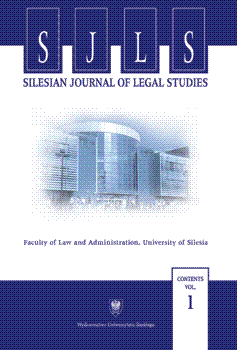The Theoretical Aspects of Legal Moralism
The Theoretical Aspects of Legal Moralism
Author(s): Antal SzerleticsSubject(s): Law, Constitution, Jurisprudence
Published by: Wydawnictwo Uniwersytetu Śląskiego
Keywords: Legal moralism; paternalism; harm principle; offense principle; John Stuart Mill; Joel Feinberg; Wolfenden report; Hart-Devlin debate; Dudgeon v United Kingdom; Müller v Switzerland.
Summary/Abstract: The article describes several theories relating to the issue of enforcement of morals. Most authors, except for Stephen and Devlin, oppose legal moralism and devise powerful arguments against it. Author tries to answer the question, whose theory is the most suitable to be applied in practice, in the legislative and decision-making process. He analyses form that point of view John Stuard Mill’s, Patric Devlin’s, Hart’s theories. In the article author also examined some arguments raised on public debate and jurisprudence of the European Court of Human Rights. Finally he founds Hart’s theory the most convincing, since it is simple, coherent and easily applicable. It is said that the society has the right to protect its members from morally offensive public acts which violate positive moral obligations. The harm and offense principles are sufficient in most cases to preserve the order of the society. The criminalization of private non-offensive and harmless acts based merely on the fact that they do not conform to the moral standards of the majority, is morally unacceptable, because it violates higher critical moral standards.
Journal: Silesian Journal of Legal Studies
- Issue Year: 2009
- Issue No: 1
- Page Range: 98-110
- Page Count: 13
- Language: English

